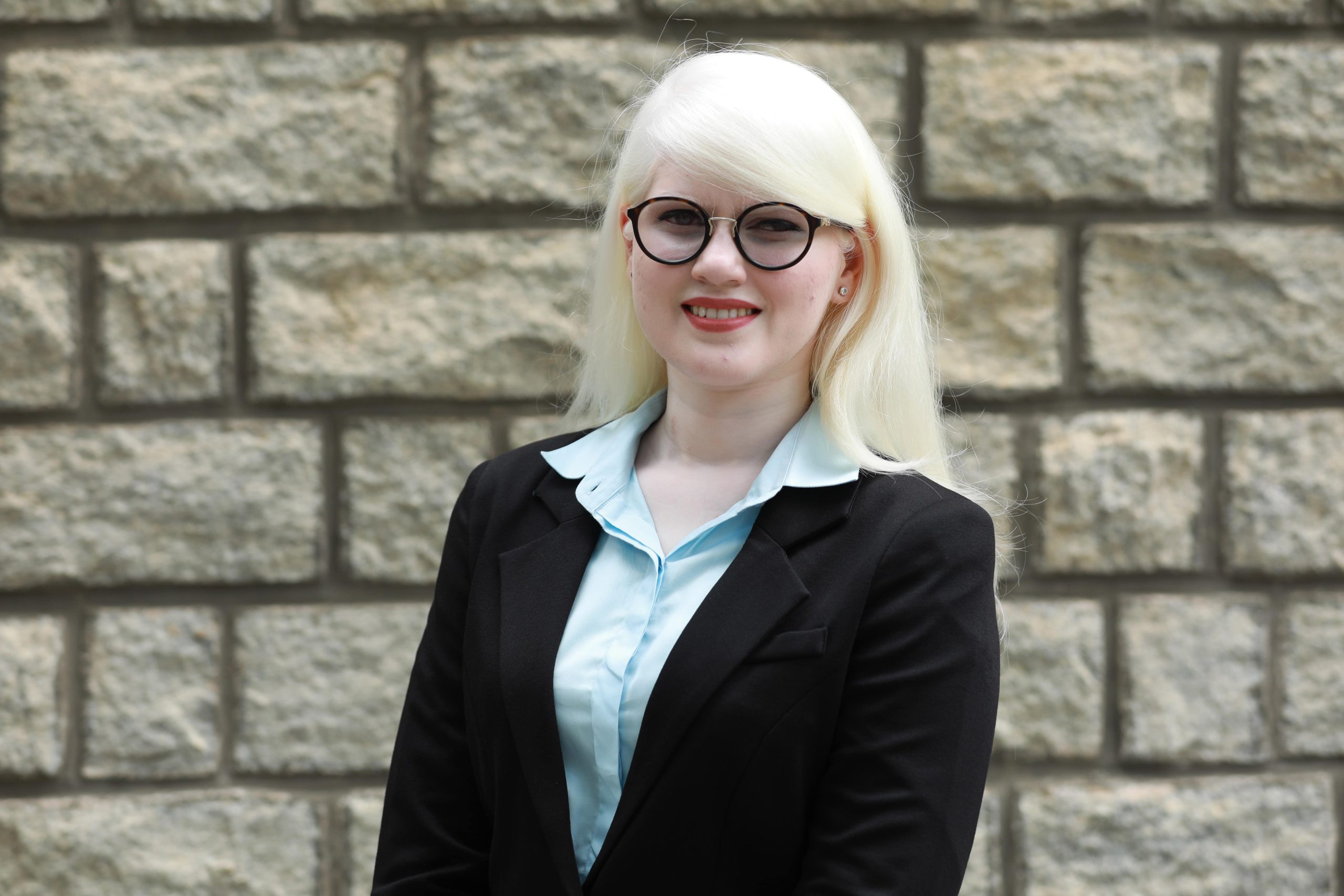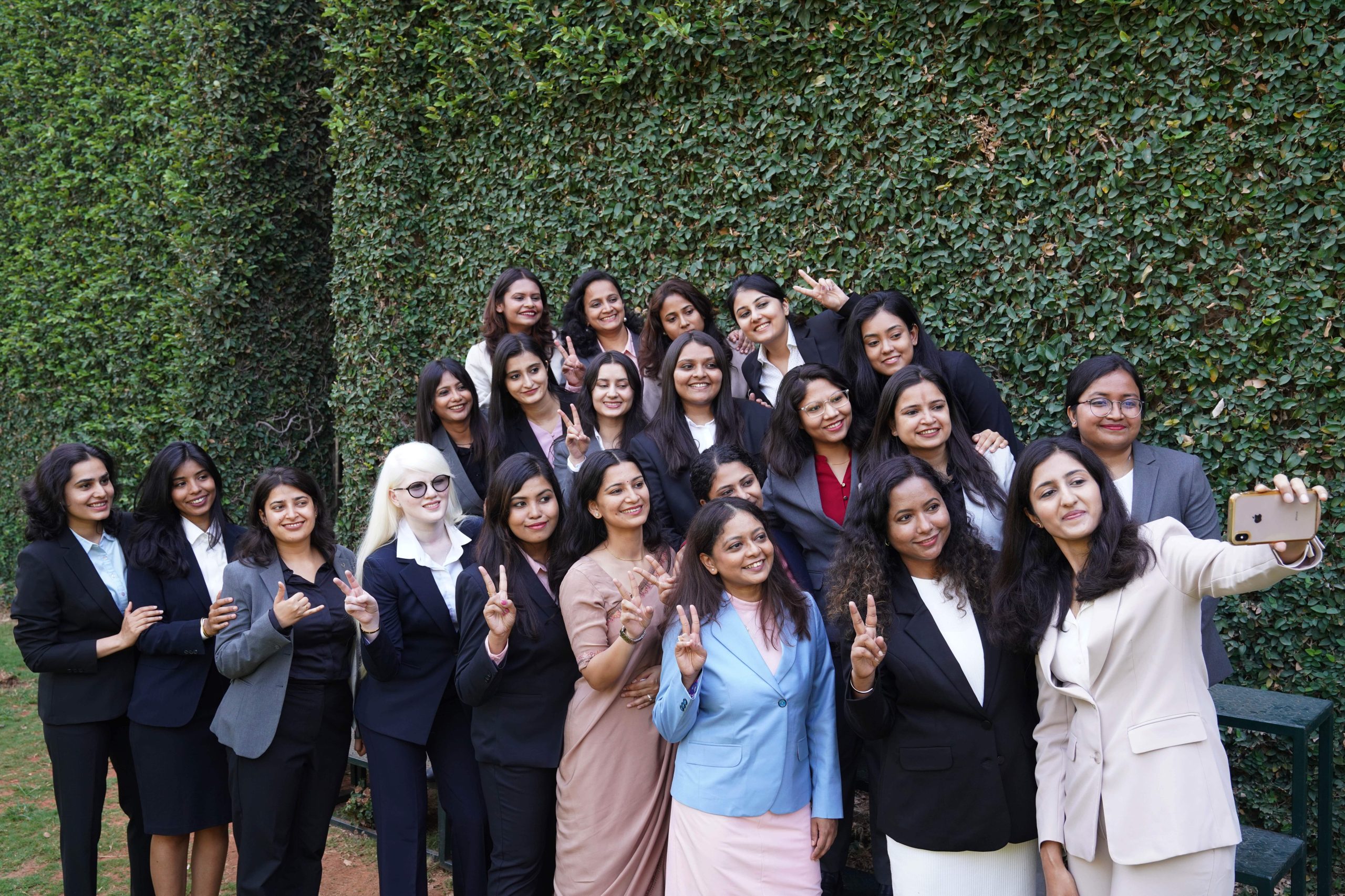“I believe it is crucial for educational institutions to communicate the support available for students with disabilities,” says Tanya Gupta, MBA-EPGP ’25, in a conversation about her journey with low vision and albinism.
Tanya brings over five years of experience as a Product Manager, specializing in the FinTech and F&B sectors. Her passion lies in building tech-driven solutions from the ground up, approaching product management with intentionality and innovation.

Reflecting on her early career, Tanya admits, “Initially, I faced significant challenges in collaboration due to my low vision and hesitation in disclosing this to my colleagues. I often avoided opportunities to present, fearing that I wouldn’t be able to see the presentation from a distance.” This reluctance led to misunderstandings and a reliance solely on her listening skills to get by.
However, something shifted when a manager encouraged Tanya to embrace her strengths and communicate her limitations. “This was a pivotal moment in overcoming my self-imposed barriers and helped me grow both personally and professionally,” she recalls.
Carrying her learnings over to IIMB, she shares, “My experience at IIM Bangalore has been immensely positive, thanks to the supportive environment fostered by both faculty and peers”.
The institution’s accommodations, such as enlarged question papers and the installation of digital boards, have been particularly beneficial. “The support has empowered me to step out of my shell and participate actively in extracurricular and sports activities, overcoming my stage fright and self-consciousness as an albino,” she shares.

One of Tanya’s memorable experiences at IIMB was during the first term, when Prof. Shankar Venkatagiri, Information Systems area, introduced a digital whiteboard in the classroom. “This initiative profoundly impacted my learning experience, making me feel included and valued. It was a small yet significant step towards creating an inclusive learning environment, and it made a lasting impression on me,” Tanya recalls. The digital board has now become the norm in all her classes, mandated by the ODI chairperson at IIMB.
Disability inclusion cannot be an afterthought, Tanya emphasizes, sharing a personal anecdote. “During the admissions process, I was reassured by the IIMB team’s commitment to providing necessary accommodations, which was a decisive factor in my choice to join”.
“Many may hesitate to pursue higher education due to concerns about inadequate support. With more transparency and outreach, we can encourage more individuals to continue their education despite their challenges,” Tanya added.
She also believes that educational institutions can significantly improve support for students with disabilities by actively listening to their needs and implementing appropriate solutions. “As a person with low vision, whose vision cannot be corrected through glasses, I struggled with traditional blackboard learning. The introduction of digital boards at IIMB has been transformative, enabling me to use on-screen magnification and fully engage with classroom content”.
When accessibility is always a ‘priority’, it leads to inclusive and equitable educational practices. As Tanya states, “Increased access to technologies can ensure that learning is inclusive and engaging for all students, regardless of their physical limitations”.
